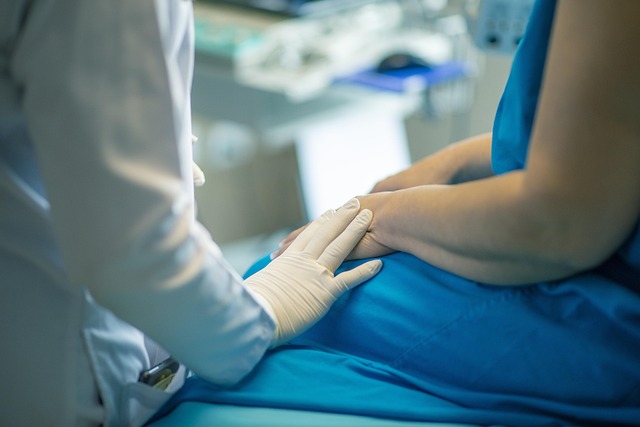How to Earn Money by Donating Sperm: What You Need to Know
Sperm donation is a unique way to earn extra income while helping others build families. This article explains how the process works, who qualifies, what the medical screenings involve, and how much you can realistically make by donating at certified sperm banks near you.

Requirements to Become a Sperm Donor
Not everyone qualifies to become a sperm donor. Sperm banks and fertility clinics maintain strict criteria to ensure the health and viability of donations. Generally, donors must:
-
Be between 18-39 years old (though many clinics prefer donors between 21-35)
-
Have a college degree or be currently enrolled in a university program
-
Be in good physical health with no hereditary diseases
-
Have above-average height (usually 5’9” or taller)
-
Have good vision and hearing
-
Have no history of STIs or genetic disorders
-
Be willing to provide detailed family medical history
-
Pass comprehensive physical examinations and psychological screenings
-
Commit to regular donations for 6-12 months in most programs
The acceptance rate at reputable sperm banks is surprisingly low—only about 1-5% of applicants typically qualify after completing all screening procedures. This selectivity ensures that recipients receive healthy, viable sperm with minimal risk factors.
What to Expect During the Sperm Donation Process
The sperm donation process involves several steps that potential donors should understand before committing:
Initial screening begins with an application and basic health questionnaire. If you pass this initial phase, you’ll be invited for a more comprehensive evaluation including:
-
Detailed medical and family history assessment
-
Physical examination and blood tests
-
Genetic screening for hereditary conditions
-
Infectious disease testing (HIV, hepatitis, etc.)
-
Semen analysis to check count, motility, and morphology
-
Psychological evaluation
Once accepted into a program, donors typically:
-
Visit the facility 1-3 times per week
-
Abstain from ejaculation for 2-3 days before each donation
-
Produce samples in a private collection room
-
Maintain communication with the clinic about schedule changes and health updates
Most donation commitments last 6-12 months. Many clinics require donors to notify them of any new health conditions that develop even after the donation period ends.
How Much You Can Earn from Sperm Donation
Compensation for sperm donation varies significantly depending on location, donor qualifications, and the specific clinic or sperm bank.
Most donors receive between $50-$200 per accepted sample. However, not all samples pass quality control tests, so payment isn’t guaranteed for every visit. Since donors typically visit 1-3 times per week, monthly earnings can range from $200-$2,400.
Some programs offer additional incentives:
-
Completion bonuses for fulfilling the entire contract period
-
Referral bonuses for bringing in other qualified donors
-
Higher compensation rates for donors with rare characteristics or exceptional health profiles
-
Additional payments for agreeing to be an “open identity” donor (allowing offspring contact when they turn 18)
| Sperm Bank/Clinic | Base Payment Per Donation | Potential Monthly Income | Contract Length |
|---|---|---|---|
| California Cryobank | $100-$150 | $400-$1,800 | 12+ months |
| Fairfax Cryobank | $80-$175 | $320-$2,100 | 6-12 months |
| Seattle Sperm Bank | $70-$100 | $280-$1,200 | 6-12 months |
| Xytex Cryo International | $100-$200 | $400-$2,400 | 6-12 months |
| NW Cryobank | $90-$120 | $360-$1,440 | 9-12 months |
Prices, rates, or cost estimates mentioned in this article are based on the latest available information but may change over time. Independent research is advised before making financial decisions.
It’s important to understand that sperm donation is not a quick way to earn money. The thorough screening process can take 1-3 months before you’re approved to donate, and payments are only made for samples that meet quality standards.
Best Clinics That Pay for Sperm Donation
When looking for reputable sperm banks that offer competitive compensation, consider these established organizations:
California Cryobank (multiple locations nationwide) is known for offering some of the industry’s highest compensation rates and has one of the most extensive donor programs in the country. They also provide comprehensive genetic testing and excellent donor support.
Fairfax Cryobank operates facilities in several major cities and offers competitive compensation with potential bonuses. Their rigorous screening processes are well-respected within the industry.
Seattle Sperm Bank provides a more personal approach with dedicated donor coordinators and straightforward contracts. While their base compensation may be slightly lower than some competitors, they often have more relaxed physical requirements.
Xytex Cryo International offers competitive payments and operates internationally, providing donors with the potential for their samples to help families worldwide. They also have one of the more comprehensive genetic screening processes.
Before choosing a clinic, research their reputation, read donor reviews, and understand their specific requirements and commitment expectations.
Pros and Cons of Donating Sperm for Money
Before making a decision about sperm donation, consider these advantages and disadvantages:
Pros:
-
Earn supplemental income while helping others build families
-
Comprehensive health screenings that might identify unknown medical issues
-
Flexible donation schedules that can work around school or work commitments
-
Potential to help individuals who cannot otherwise conceive
-
Anonymous options available at many clinics (though laws vary by location)
Cons:
-
Rigorous qualification process with high rejection rates
-
Significant time commitment (6-12+ months)
-
Strict lifestyle restrictions during donation periods
-
Potential psychological impact of having biological children you don’t know
-
Future implications as laws regarding donor anonymity continue to evolve
-
Tax obligations on income received
Many donors report satisfaction in knowing they’ve helped others build families, but the decision should not be made lightly given the long-term implications.
Sperm donation represents a unique opportunity to earn money while potentially helping others achieve their dreams of parenthood. However, the strict requirements, time commitment, and potential future implications make this more than just a simple financial transaction. Those considering donation should thoroughly research clinics in their area, understand the legal frameworks governing donation in their location, and carefully consider both the immediate benefits and long-term implications of their decision.
This article is for informational purposes only and should not be considered medical advice. Please consult a qualified healthcare professional for personalized guidance and treatment.




